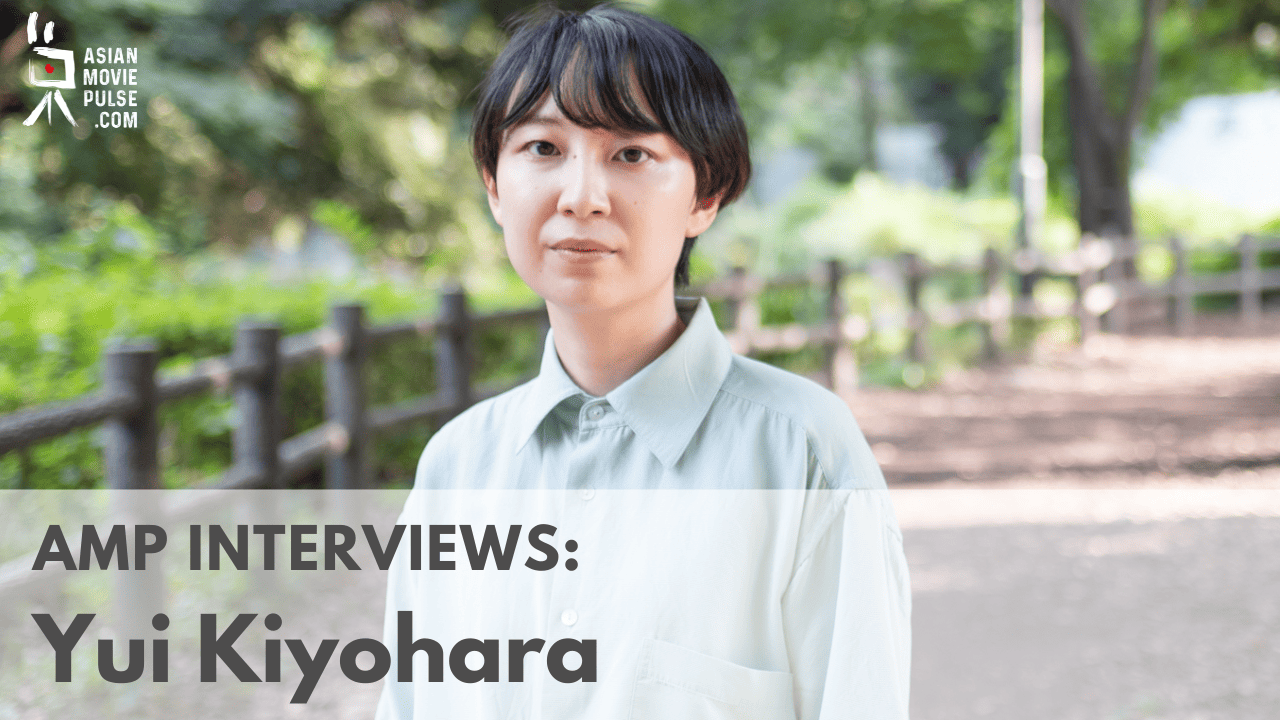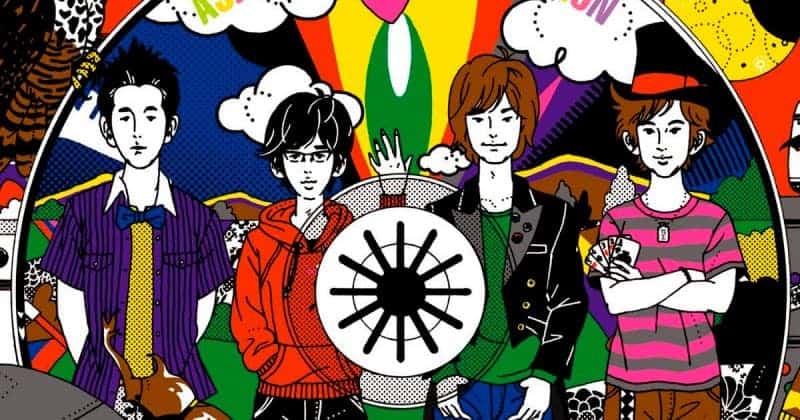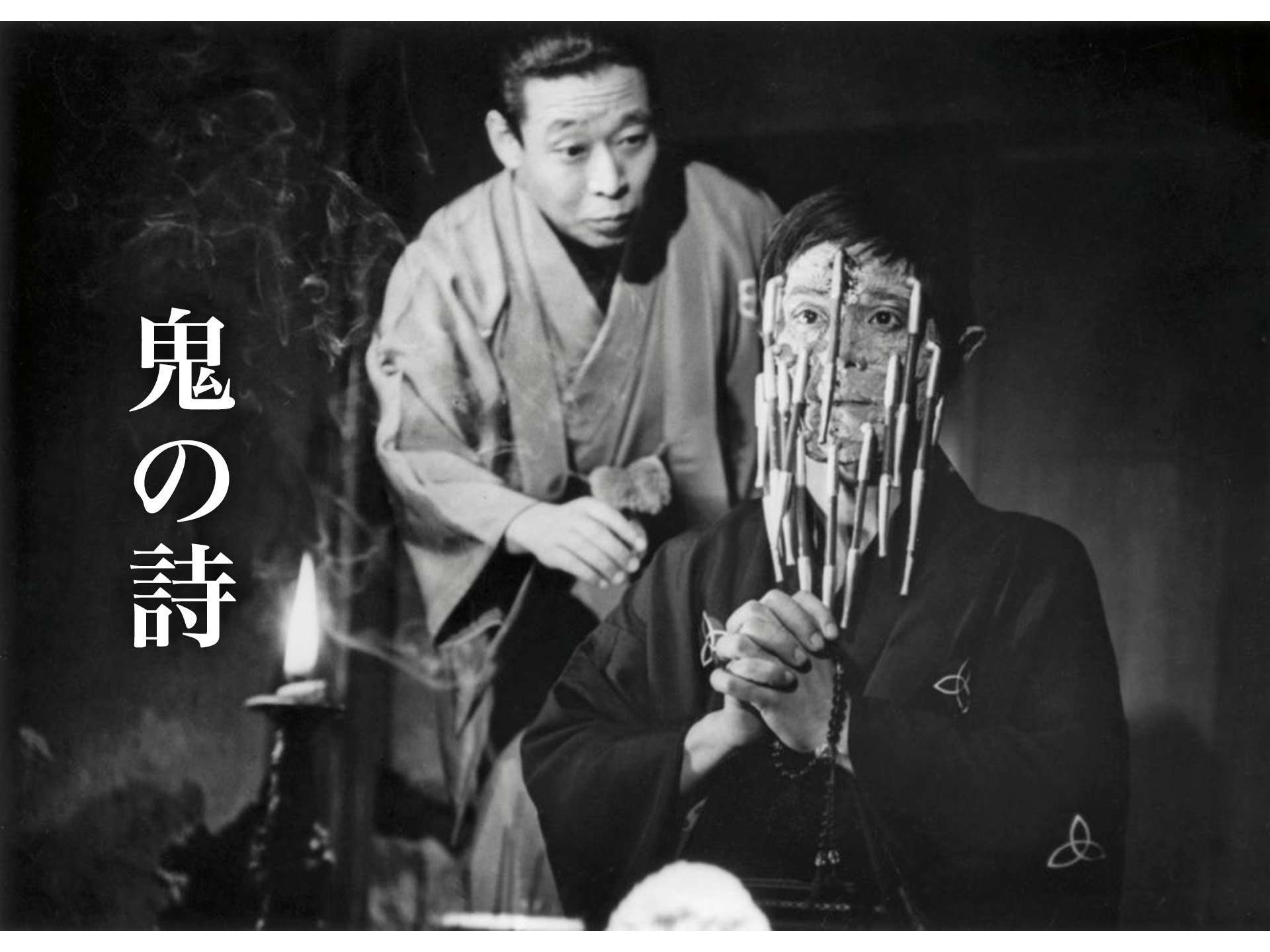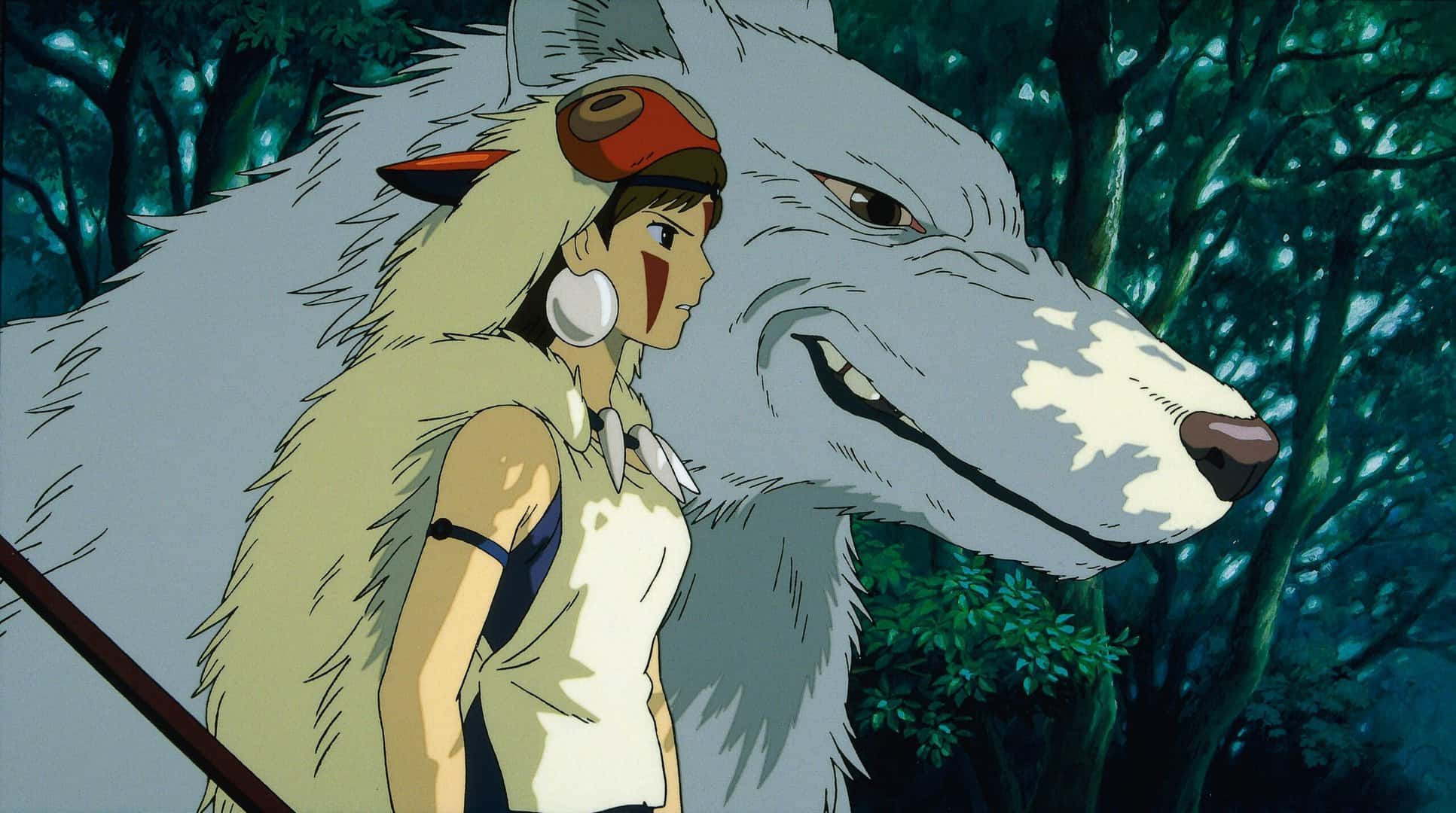The film frequently feels like a documentary, in the way it is shot. Can you give us some details about your cooperation with DP Kentaro Kishi that resulted in this approach?
Fujimoto: There are two ways for shooting a film. The first one is the camera following what is written on the script. The other way is to start recording and see what is going to happen in front of the camera. These two approaches are radically different, but depending on the scene, I was talking with Kishi regarding what would the best approach.
We have a bond with Kishi, because we have shot together also “Passage of Life” and “Bleached Bone Avenue”. We know each other's system well so in this film, sometimes, when I say, “stop”, Kishi does not stop, he continues shooting on and on, and I do not stop him, because I believe in his system. If he thinks he should shoot more, then there is something in front of the camera that needs to be told. It is not the typical director-cameraman relation, we really trust each other, so sometimes the final cut would be made based on Kishi's decision. So maybe it is this cut that made the film look like a documentary, because documentary is a style closer to the cameraman's feelings.
Can you give us some more details about the location the film was shot?
Watanabe: It was shot in Aomori prefecture, in a town called Sotogahama. It is a small town, with a population of about 5500.
Fujimoto: Initially, the script had the three girls working for a Japanese farmer, and I wanted the location to include two elements: sea and snow, and the latter needed to stay in the film. We were looking for the location other than Hokkaido. In Sotogahama, the snow stays for a large part of the winter and also it is along the ocean. Because there are many places that have a lot of snow in the west side of Japan, but they also have strong winds, so the snow goes away. Not in Sotogahama though. Then, we had the chance to go to that fisherman's building, where the girls are staying in the movie, and this location was really nice and we all loved it, therefore we changed the script, and made their employer a fisherman instead of a farmer.
Whenever I write a script, the story always takes place in the winter, but I do not know why.
Watanabe: Furthermore, the people in the area treated us really well, the Mayor met with us, and the city hall officially cooperated with us. Actually, hundreds of people and the city hall staff got together, moved the trucks, removed the snow, and really helped. That is why we also mention them in the credits of the film.
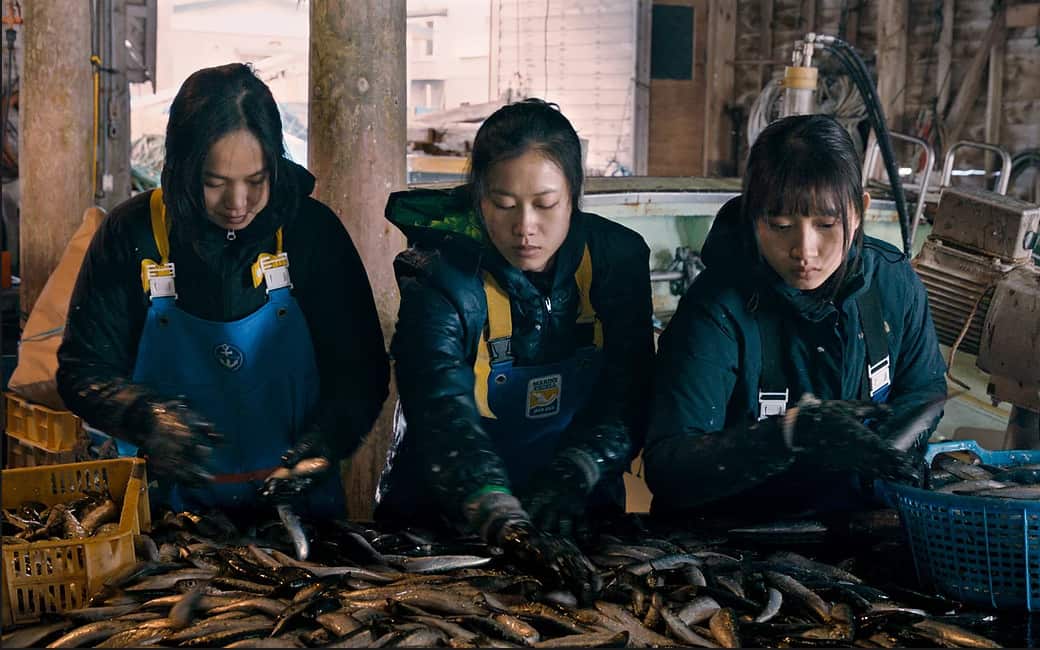
This part contains heavy spoilers
I feel that one of most significant faults of Japanese movies is that the directors do not seem to know when to end their film. However, I felt that “Along the Sea” finished exactly when it should. How did you decide to end it in that particular moment?
Fujimoto: For a large part of the Japanese audience, this kind of ending makes no sense, so I am very happy that you are saying that the ending was timely. During the production of the film, I was always thinking about the ending, and I was 50-50 about how to end. I did most of the editing myself, and during post-production, I found the conclusion.
When I was watching this last scene, I felt that Phuong really wanted to make that decision and move forward with her life, even though she has to lose the baby. But this moving forward also emits a kind of positive energy. The camera in this scene does not force the audience to cry, it just stays on her and records Phuong having the will to make a decision. I wanted to share this perspective with the audience and that is what I wanted to watch in the final scene.
Watanabe: From the producer's point of view, even when we were shooting “Passage of Life”, we were always thinking how it is going to end. Akio did not want to close the camera when the story ended, so he just blacked out the image, but the sound continued, because he did not want the audience to let the story go, until credits actually end. This is his philosophy about film, not forcing the audience to feel something, but to be with the characters, even if it is from a distance.
Can you tell us a bit about how you cooperated with the cast?
Fujimoto: Initially, I shared with the actors that I wanted the audience to feel that they are actual people who run away from the technical trainee program. I did not want the audience to feel that they are actresses, so I asked them to forget any kind of previous experience they had in front of the camera. To live as their characters in front of the camera. That is more important than acting. That was my main focus with the cast.
What is your opinion of the current state of Japanese movie industry?
Watanabe: I am always wondering about the reason we are making films. 15 years ago, I do not think I would be able to make a film with Fujimoto like this, it would be impossible. To make a specific movie, we need many people that encourage us to make that movie; this is also very important. Furthermore, we need many people to work in the film that have the same motivation with us. 20 years ago, the industry people would not treat me as a person able to shoot an independent film, they would tell me to go and work in film production for ten years, as assistant, and then I could become a producer. I had no experience working as an assistant producer, I just started working with directors and we ended up making a number of co-productions. That is one way to survive in the film industry.
I want many filmmakers to follow our way of shooting films. It is now easy to shoot a film if you have a script, a camera, and some money, without thinking too much about the whole concept. However, the camera is always shooting the world itself and the world is complex and it consists of many categories and different layers of people. Only when the camera is “placed correctly” you capture it as a film.
So, unless those people (the ones who just shoot a film without thinking about it much) go out of their world and talk to people or maybe go abroad to get to know things they are not familiar with and maybe watch foreign films and attend foreign festivals they don't usually experience, they will not get the essence of filmmaking. When you are in the same “place” all the time, and then you just shoot something, it does not make sense to me. Because film is talking about the world itself.
Fujimoto always tries to attend foreign festivals and talk with the people there, that is how we communicate with the world. I do my own workshops with local people abroad to open up my views and update myself and I share the footage or short films I encountered in my life to my fellow citizens, ten or fifteen people and then talk about it. I expect the Japanese filmmakers to open up their mind more.
Are you working on anything new at the moment?
Fujimoto: I have several things in mind. In my movies so far, I have been presenting the side of the immigrants but now I want to present the Japanese point of view regarding the issue of immigrants in the country.
Maybe at some point, you could shoot a movie about Japanese immigrants in other countries.
Watanabe: My wife's grandmother, an octogenarian, saw the film and told us that it was like looking at her old days, particularly regarding the scenes where the three girls are cooking inside the rundown place they live in.
Fujimoto: Maybe in the future, it could be Japanese citizens living in other countries like them, maybe the current lives of immigrants in Japan is our future. That is why I think it is very important to us to know how these immigrants in Japan feel and think
Little by little, there are going to be more foreigners coming in the country, and as we intermingle, maybe we will feel closer to them. What I am thinking is how to make this story come closer to the Japanese people, to understand their point of view.
How did the audience react to the movie in Tokyo International Film Festival?
Fujimoto: My impression is that it is very difficult to find immigrants in Japanese feature films but that is not the case in European cinema or the US. In that aspect, the audience was enjoying that they could see this unusual subject on cinema. Regarding the ending, I heard many voices talking about how they could see the emotions of the main character, and I expected less people to understand the ending, but that was not the case, at least in the festival. Until the film is released in Japan, however, we cannot really tell how the audience will react.
So, will the film be released in Japan?
Watanabe: Thank you for asking, next spring, the film will play in Japanese cinemas, starting at PolePole Higashinakano, the theater that also released “Passage of Life”. We have already eleven theaters screening the film in Nagoya, Osaka, Yokohama, Kyoto, Hyogo, Ishikawa, Fukuoka and Aomori. We were not a distribution company but we had to become one




